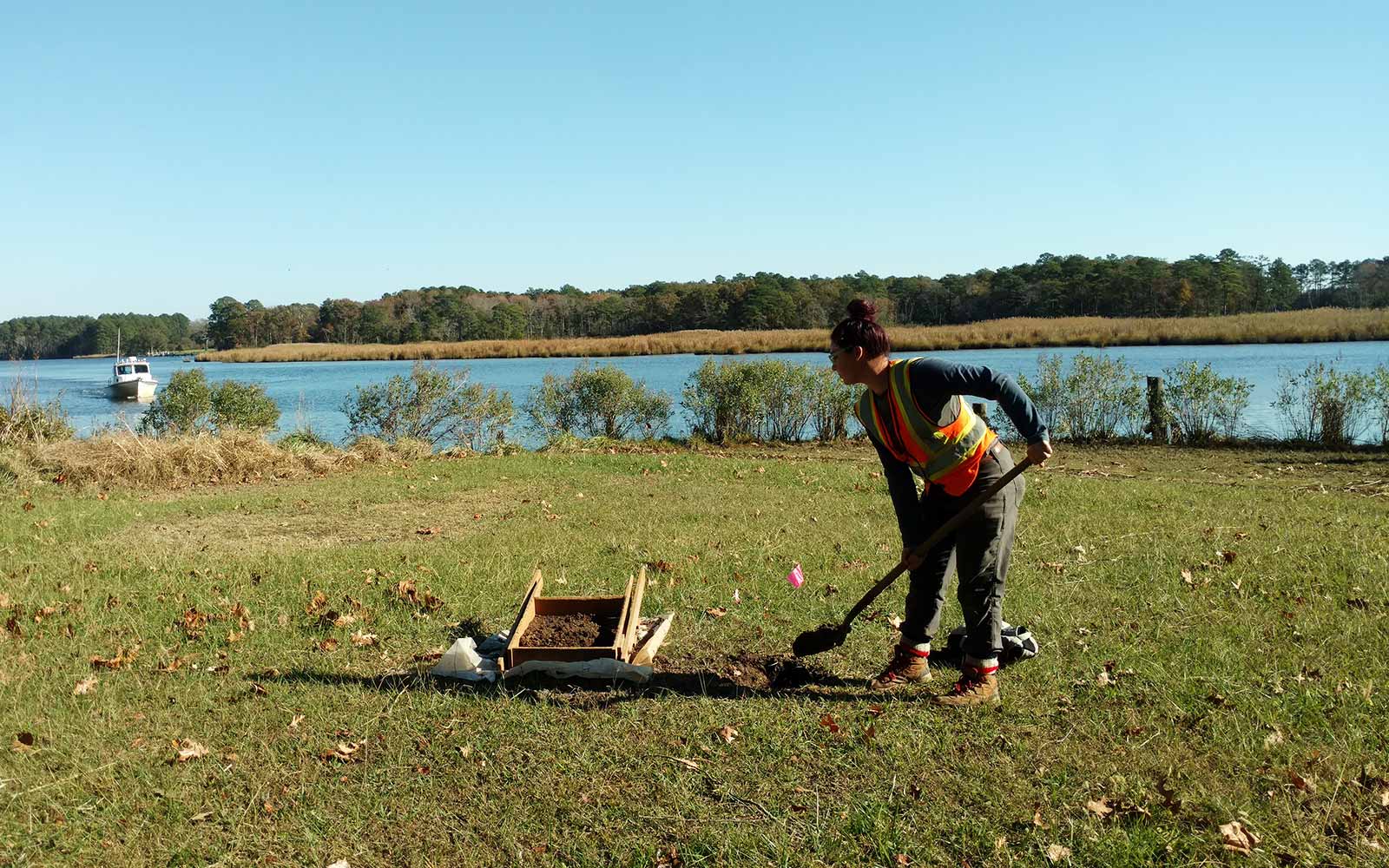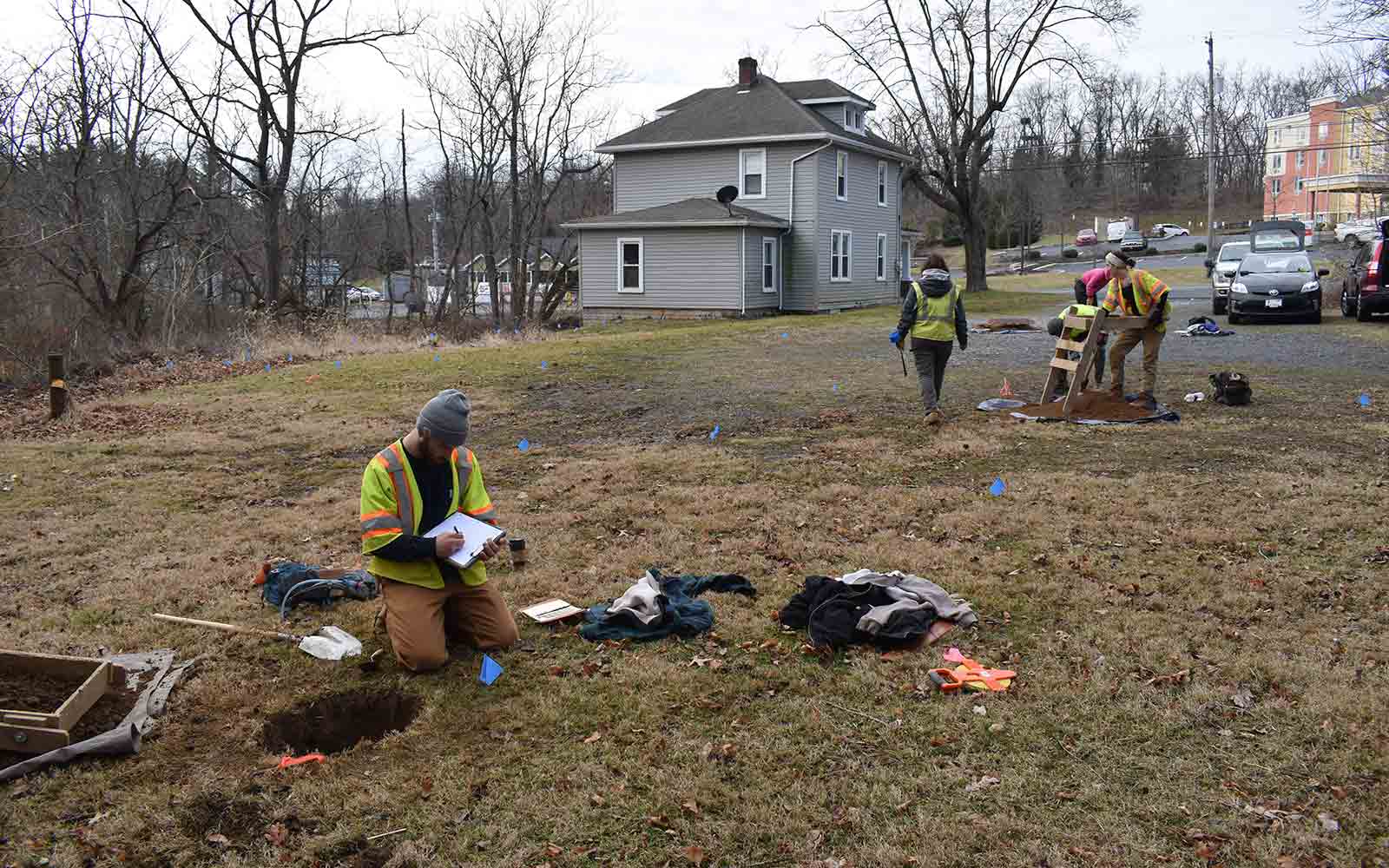Our clients often enter into the CRM universe via a regulatory request for a Phase I survey of a project planned for development. Phase I surveys offer a multi-discipline systematic field investigation designed to quickly identify cultural resources in your project area. A Phase I survey involves background research using environmental data, previously conducted cultural resources studies, and historic maps and documents followed by a systematic field survey. The field survey can be conducted in numerous ways depending on the conditions and governing regulatory guidelines. The goals of the survey are to identify and delineate archaeological sites or other cultural resources and, to the extent possible, provide recommendations for each identified site’s future management.
Phase I surveys are usually mandated by state or local review agencies and are governed by geographically-dependent standards and legal guidelines, but most generally include the excavation of square or round excavations called shovel tests to sample as broad an area as possible in the most cost-effective way. In recently plowed fields, a systematic surface collection can be enough to identify artifact concentrations that could constitute an archaeological site. Simple pedestrian survey, photo documentation, and mapping are employed in areas that are wetland or previously disturbed.
If an archaeological site or other cultural resources are identified, our experienced staff will craft the best recommendation for managing the site under any applicable national, state, or local criteria for significance. Sites are cataloged by a centralized agency in each state (usually called the State Historic Preservation Officer, or SHPO), and our staff has extensive knowledge of the cataloging process for states throughout the country.



